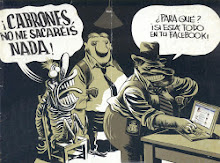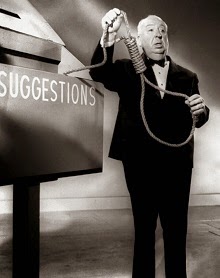Sam Jordison
As well as portraying a fascinating character who won’t grow old, each book offers a finely rendered snapshot of a moment in the social history of Edinburgh
Around 10 years ago, I mocked the idea of any sane person wanting to read an ebook. I’ve been wary of making predictions ever since. All the same, I hope I’m on safe ground when I say that the Inspector Rebus novels are going to be of lasting interest to posterity.
I say this not because of the quality of the prose, or the sheer number of people who currently read the books. I may think they have artistic interest, but I can’t speak for future generations.
My certainty comes from the idea that these books will continue to have historical value. Each is a finely rendered snapshot of a specific time and place. The descriptions of 1980s Edinburgh struck me forcefully when I read Knots and Crosses last week (alongside plenty of other Reading group contributors). This week, reading The Falls, I was even more aware of how well the novel captures a specific time. And how interesting it was to realise that this era now seems long gone, even though the novel was only published in 2001.
Before I try to explain why you should read The Falls if you want to know about life in Scotland around the turn of the millennium, a few caveats. Obviously, the characters are egregious. I’m not saying that everyone in Edinburgh was a criminal, a regular at the Oxford Bar or a dour, violent policeman, terrified of the inside of his own head. Nor do I want to overstate the realism in the novel. As in most of the Rankin books I’ve read, things get pretty wild in the penultimate chapter. That is not a criticism. I love the catharsis, the adrenaline ride, the camp confessional speeches and watching Rebus rumble his way through a good physical challenge. Definitely part of the fun, as far as I’m concerned, though you have to take the action with an Edinburgh chippy-sized portion of salt.
But in other ways, The Falls is an intriguing bit of social, technological and political history – and one that feels real both factually and emotionally. It tells us important things about the world in which it is set. Just as The Maltese Falcon immediately throws its reader back to 1920s San Francisco, and Sherlock Holmes is one of the first reference points for late 19th-century London, Rebus does the business for his generation in Edinburgh.
“I think it’s astonishing that so many people would want to read about a dour Presbyterian Edinburgh cop,” Rankin once said. But he admitted that he understood something of the appeal.
Crime fiction is going through a second golden age. It seems to me … that the literary novel is actually looking back. The crime novel is dealing with illegal immigrants, paedophiles, drugs, and it’s dealing with the big moral questions of good and evil.
He might also have added that few other books are so good at capturing small moments of day-to-day life.
The Falls is full, for instance, of telling passing references to developments in the Scottish capital. Towards the end of the story, we see a character called Jean Burchill walking in the centre of town: “She paused again on North Bridge, staring eastwards towards where the new parliament showed no signs of progress.” And so we learn that the construction of the new parliament is something of a running joke. A sentence later, we learn that the Scotsman newspaper has moved its offices from its old home (“currently been gutted: another new hotel in the making”) near North Bridge to be nearer to the parliament. In the novel these things seem strange, new, flimsy and possibly even a little daft. Will that hotel have the resonance of the old Scotsman building? We’re asked to doubt it. And this question seems all the more interesting just over a decade later, when the new parliamentary setup has become such a fixed part of a Scotland dominated by Holyrood.
The action also takes place in that curious period around the turn of the millennium when the dotcom boom had been and gone, but social media and smartphones were barely imagined. One of the (weaker) strands in the book relates to an online role-playing game that needs participants to be able to connect to the internet remotely and often. This might seem fairly contemporary, except that this is presented as an unusual and expensive behaviour full of protocols and intricacies that need to be explained to the non tech-savvy. There are also WAP phones. I’d mercifully forgotten about these devices until reminded by The Falls how important and advanced a few people had then tried to claim they were – just as poor old tech-hungry Grant Hood does in the novel:
Hood held up his mobile phone. ‘It’s a WAP,’ he explained sheepishly. ‘Just got it today. Sends emails, the lot.’
I find it hard to imagine many other novels featuring WAP phones. Likewise, few other histories will recall that many similar conversations were going on around the UK at the same time, how ridiculous everyone thought the WAP evangelists were, and how quickly those poor souls became embarrassed. Who wants to be bothered by the internet on a phone, after all?
In an article like this one, such particulars may seem fleeting and inconsequential, but in the novel itself, where there are so many other flashes of memory, they start to feel brightly illuminating. Rankin never lets his details get in the way of the story, but they accumulate beautifully. To give another example, The Falls is full of unhealthy living, especially involving alcohol. A quick ebook audit revealed:
* One hundred and twenty-two references to alcoholic “drink” (As in: “He just liked to drink.” “They’d been drinking on and off all afternoon …” And not including the alternative “fizzy drinks” – although these too are a marker of ill-health.)
* Four additional references to “booze”.
* Twenty-two mentions of “whisky”. Plus an additional Talisker and four Ardbegs.
* Eight beers. (A low number, but quality makes up for the lack of quantity: “Rebus took a long swallow of beer. Having nursed his pint while Rebus downed two double whiskies and two beers, Grant was dismayed to find another half poured into his glass as soon as there was room for it.”)
* Seven lagers.
* Five Guinnesses.
* Seven vodkas.
* Two gin and tonics.
* 11 references to wine. (As in: “She’d had three glasses of wine on top of the champagne.”)
* Four champagnes.
* Four mentions of IPA (often in multiples: “‘Three IPA,’ Harry began.”)
* 60 coffees.
* 10 sugars.
* Dozens of cups of tea. (Most inexpertly served: “‘Now that’s class’ she said, examining the teabag floating in the mug.” “Switched a kettle on and rinsed a mug under the tap. Teabag, powdered milk.”
* One “herbal infusion”. (A non-caffeinated tea drink, which does not go down well with the person made to drink it.)
* 39 cigarettes.
* 13 additional references to cigarette smoke.
* One “fag break”.
I’m sure there’s far more in there, too. It’s an accumulation that points towards a national phenomenon highlighted in The Falls: “The Scots had an unenviable record for heart disease and tooth decay, both the result of the national diet: saturated fats, salt and sugar.”
You learn a lot from the sheer quantity of items in the novel that are variously tooth-rotting, waistline-expanding, mind-boggling, liver-crumbling, lung-busting. But the clever thing is the way Rankin gets behind the statistics and shows the urges that lead to this death-courting lifestyle.
He addresses the question directly at one point:
She’d wondered what it was that made the Scottish people reach for the comfort foods, the chocolate, chips and fizzy drinks: was it the climate? Or could the answer lie deeper, within the nation’s character?
But really the important thing is the way the drinks and fags blend into the action, and give a real feeling for this lifestyle. The Farmer, Siobhan Clarke, Jill Templer: we can’t logically explain their desire for drink any more than they can, but we understand why they’re driven to the bar. Most of all, we get inside John Rebus, who winds through the novel like so much toxic sludge, an astonishingly unhealthy emblem of Scottish manhood, as Jean Burchill makes clear in conversation with the stodge-loving detective:
‘I’m guessing,’ she said, ‘that you like a fry-up on a Sunday.’‘Am I so transparent?’‘Quite the opposite. You’re a flesh-and-blood Scottish male.’
Rebus is Every-Scottish-man, just as, in a way, he is Every-detective in the mould of Sam Spade, Philip Marlowe and all those other the hard-living, deep-drinking loners of this genre. Yet it would be wrong to think of him as an empty vessel for these ideas and cliches. The whole thing works because Rankin has taken the archetypes and made them his own. Rebus lives and breathes – to the extent that you can almost smell the whisky he’s been drinking. He has his own way of thinking, his own way of talking, his own way of brooding, his own vulnerability, his own demons, his own horror of being alone in his house. His own reasons for fancying a pint or four, now and again.
There’s something about him. And if I’m having trouble defining it, that’s just another mark of his complex, tangled humanity. It isn’t exactly charisma – his colleagues find him too annoying for that, but he is compelling, intriguing and unique. In fact, scrub everything I’ve just said about posterity and historical interest. These novels will also endure because their central character is so strong. Rebus is immortal, even though he’s drinking himself to an early grave.


































0 comentaris:
Publica un comentari a l'entrada